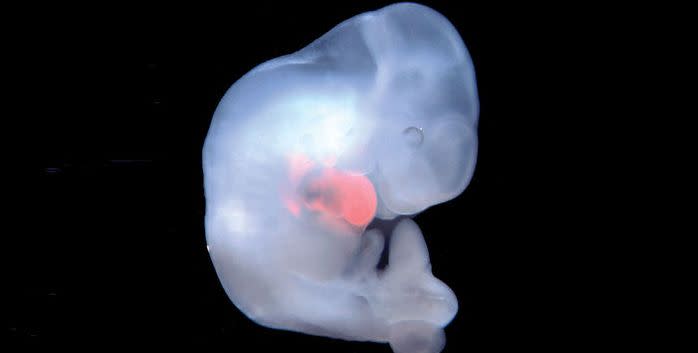I Guess You Can Grow a Human Pancreas In a Rat Now

The Japanese government is granting its support to a scientist working to create animal embryos that contain human cells, and to then subsequently transplant them into surrogate animals. The decision reverses one made earlier this year, which banned the procedure.
Scientist Hiromitsu Nakauchi wants to create a human pancreas in rodents like rats and mice, and the Japanese government, specifically its education and science ministry, has issued new guidelines that open up the procedures to anyone. While Nakauchi isn't the only scientist involved, he does lead the project.
"Finally, we are in a position to start serious studies in this field after 10 years of preparation," he was quoted as saying in the Asahi Shimbun, a Japanese newspaper. "We don’t expect to create human organs immediately, but this allows us to advance our research based upon the know-how we have gained up to this point."
Nakauchi is a specially appointed professor at the Institute of Medical Science of the University of Tokyo (IMSUT), and since 2008 he has been the director of its Center for Stem Cell Biology and Regenerative Medicine. In the U.S., he heads up the Nakauchi Lab at Stanford, which works on "uncovering new diseases, elucidating the causes of disease, and developing therapeutic modalities" for those diseases, according to its website.
Last year, Nakauchi submitted a research plan to the ethics board of IMSUT to inject what are known as induced pluripotent stem cells, or iPs cells, into the fertilized eggs of pigs. iPs cells are taken from blood or skin cells and then reprogrammed, allowing them to transform whatever type of human cell the situation calls for. Nakauchi's team would want to transform them into pancreatic cells.
The procedure would create human-animal chimeric embryos. Scientists created a pig/human chimeric embryo in 2017 and a sheep/human hybrid in 2018. If everything went to plan, Nakauchi would grow a human pancreas suitable for transplant.
The research requires two years of monitoring the rodents after they're born. At Stanford, Nakauchi has placed human iPS cells within fertilized sheep eggs and transplanted the embryos into the wombs of sheep.
An experiment like Nakauchi's has never been attempted in Japan, and according to the Asahi Shimbun, the new guidelines only allow the research "on the precondition that researchers take appropriate steps to prevent the birth of an ambiguous creature that could be part human."
But Nakauchi says that wouldn't happen.
"The number of human cells grown in the bodies of sheep is extremely small, like one in thousands or one in tens of thousands," he said. "At that level, an animal with a human face will never be born."
Still, some scientists question his use of rodents.
"If the goal of such studies is to discover a therapeutic application for humans, experiments on rats and mice are unlikely to produce a useful result because the size of the organ will not be sufficient and the result will be a far cry from humans anatomically," life science specialist Jiro Nudeshima told the Asahi Shimbun.
Source: Nature
You Might Also Like

